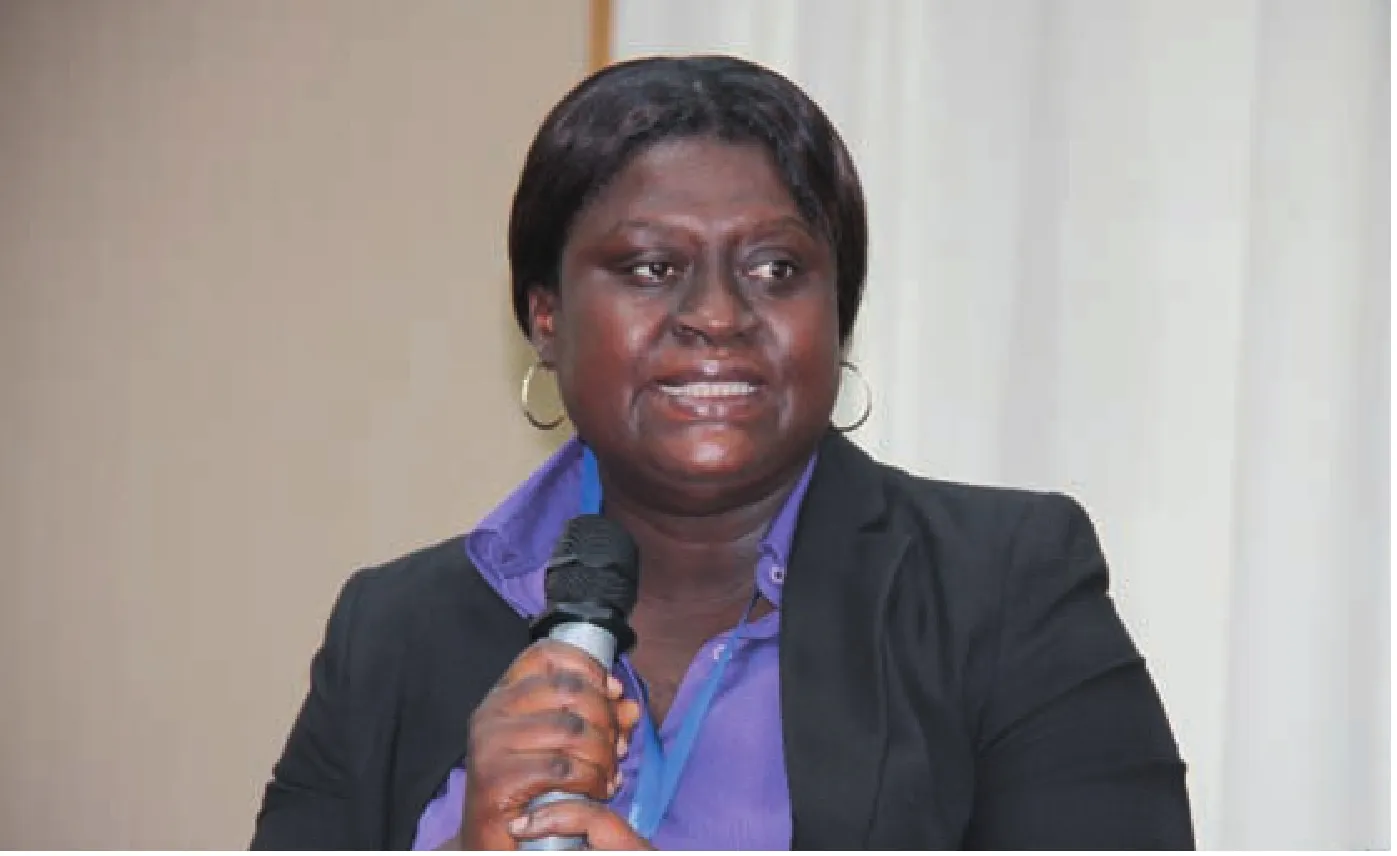在高等教育上寻求合作的可能
By Hilda Agyepong Asante 译/史聪一 王梓宁
在高等教育上寻求合作的可能
By Hilda Agyepong Asante 译/史聪一 王梓宁
POSSIBILITIES OF COLLABORATION IN HIGHER EDUCATION

本文作者Hilda Agyepong Asante
2015年5月12日到6月1日,中国政府发起了一届为期三周,由商务部主办关于“引进外国专业知识和发展全球专业人才”的研讨会,由国家外国专家局组织承办。该研讨会面向来自厄瓜多尔、埃及、埃塞俄比亚、加纳、马拉维、斯里兰卡、东帝汶以及苏丹等8个发展中国家的政府官员。会议在北京外国专家大厦举办,此外还在杭州有一周的会议时间。会议主题是“分享经验,促进交流”。主要目的是培训人才,支持和促进技术转让,为专业知识共享创造条件,为参会国家的文化交流提供机会。与会代表共计23人,这些代表,包括我在内,都可以充分地交流想法,互相学习。
作为加纳来华代表团的成员之一,这是我首次来到中国。在亚洲国家中,中国在基础设施、技术和教育上的高度发展给我留下了深刻印象。在来中国前,我阅读了有关中国的书籍,但是亲历中国
讨会,联合研究项目、书籍和论文的联合出版、课程和项目的国际化等。杭州师范大学的留学生来自亚洲、欧洲、美洲、非洲和大洋洲,且数量惊人。
The three-week seminar on ‘introducing foreign expertise and global professionals development’ was organised by the State Administration of Foreign Experts Affairs (SAFEA) and sponsored by the Government of the People’s Republic of China through the Ministry of Commerce for government officials of eight developing countries namely: Ecuador, Egypt, Ethiopia, Ghana, Malawi, Sri Lanka, East Timor, and Sudan. It was held from May 12, 2015 to June 1, 2015 at the Foreign Experts Building in Beijing and there was also about a week’s stay in Hangzhou. The seminar was on the theme ‘’sharing experiences and promoting exchanges”. The main objectives of the seminar were: to train talents; step up efforts to support the transfer of technology; create opportunity for sharing of professional experience and opportunity for cultural exchange among countries. It was attended by twenty three delegates. We the delegates had a great opportunity to exchange ideas and to learn from each other.
Being one of the delegates from Ghana and a first time visitor to China and for that matter Asia I was so impressed with China’s high level of infrastructural, technological and educational development. I had read about China before the trip but experiencing China was beyond what Iimagined it to be. I was particularly impressed and also thought of areas of possible collaboration between China and the other developing countries. I work at the National Council for Tertiary Education, an agency of the Ministry of Education in Ghana, and the body that oversees the administration of tertiary education in Ghana and therefore thought of areas of possible collaboration between tertiary institutions in China and those from other developing countries. Higher education or tertiary education is formal learning that occurs after secondary education. It is one of the soundest investments any country can make because it provides the most cost effective and equitable strategies for long-term sustainable development. It generates the human capital for leadership and management and equips people with the knowledge and skills they need to gain employment, increase their incomes, and contribute to the socio-economic development of the country. Higher education offers an opportunity for people to escape ignorance, poverty and deprivation. The importance of higher education in development was emphasized by the Havana Declaration in 1996 when it noted, among others, that: ‘…without adequate education and research institutions, developing countries would be less able to adopt and apply the most recent developments or make contributions to their own development and close up the gap between them and the industrialized countries’ (IAUP 1999).
In China higher education is growing rapidly. There are over 2,000 universities and colleges with more than six million enrollments. China has set up a degree system, including Bachelors, Masters and Doctoral degrees that are also open to foreign students. China also offers non-degree programmes. According to the Ministry of Education of the People’s Republic of China, the government authority on all matters pertaining to education and language, higher education in China has played a significant part in economic growth, scientific progress and social development in the country “by bringing up large scale of advanced talents and experts for the construction of socialist modernization.” As of 2013, China has also become the most popular country in Asia for International students and ranks third among countries in the world. Developing countries have a lot to learn from China.
To be competitive in the modern world China is continuously investing in innovative talents and has various models in the pipeline for the future. China invests in its human resource by investing in foreign talents and combines talents both locally and internationally advanced ones for best results. It introduces high level expertise in all key sectors to meet international standards. An institution like Hangzhou Normal University is a fast growing comprehensive university with remarkable research strength today because it is active in internationalization and undertakes several forms of international exchanges and cooperation. The forms of international exchanges and cooperation that the Hangzhou Normal University undertakes include faculty and students exchanges; joint degree programmes; domestic students study-abroad programmes; international students’ education; international conferences, seminars and workshops; joint research; joint publication of books and papers; and internationalization of courses and programmes. The University has an impressive number of students from Asia, Europe, America, Africa and Oceania.
In Ghana, the tertiary education level consists of 10 universities, 10 polytechnics, 38 colleges of education and 3 specialised institutions offering courses leading to the award of diplomas and degrees. The enrollment figure is around three hundred thousand (NCTE, 2014). Ghana offers nondegree programmes too. The National Council for Tertiary Education (NCTE) was established by Act 454 of the Parliament of the Republic of Ghana in 1993 as the apex supervisory body for tertiary education. The vision of the NCTE is, “Leading tertiary education to greater heights”. As its mission, “the National Council for Tertiary Education is committed to providing leadership in tertiary education by advising government and all relevant institutions to enhance access, quality, equity, relevance and governance”. There are other supervisory institutions in Ghana established by legal instruments to collaborate with the National Council for Tertiary Education to coordinate and support the tertiary education institutions.
在加纳,提供毕业文凭和学位的高等教育教学单位包括10所大学、10所理工学院、38所教育学院和3所专业机构。入学人数大概30万左右。加纳同样也有进修课程。加纳共和国议会在1993年通过了454法案,建立了国家高等教育委员会(NCTE),这是高等教育的最高监督单位。NCTE的目标是“引领高等教育走向更高”。国家高等教育委员会的使命是“作为领导者,促使政府和相关机构加强高等教育的入学率、质量、公平性、实用性和管理”。在加纳,法律文献还规定一些和国家高等教育委员会共同协调和支持高等教育单位的监督机构。
加纳和大多数发展中国家一样,有关高等教育的一些重要问题,需要相关国家的关注和合作,这些问题包括:
·缺乏合格的申请人
在20世纪50年代早期,加纳的高等教育尚在建立时期,学生数量很少。现在情况大不一样。当代社会对高等教育的要求大大增加,但是高等教育在基础设施建设上却没有相应的增加。小学和中学教育的入学率大大增加,但公共机构却无法进行良好的管理。这使得在加纳私人的高等教育机构在近年来飞速增长。
为了解决这一问题,国家高等教育委员会(NCTE)鼓励加纳高等教育机构同世界其他机构共同合作,提升高等教育的入学人数。这是一条正确的发展道路,发展中国家都应和中国开展合作,录取更多的外国学生,以促进发展中国家的高等教育的入学人数。
作为对高等教育在传统校园教育的补充,远程教育得到了世界范围内的认可。在许多国家,远程教育都作为正式教育的进一步延伸。在加纳,教育部已经将通过远程方式进行高等教育列为一项政策。加纳经济中公共部门和私人部门中的劳动阶级都很欢迎这项政策。在全球范围内,这种教育模式备受推崇,同时其他发展中国家也在应用这种教育模式,并需要在这个领域继续合作,提升高等教育的入学机会。
·研究与基础设施建设在资金上的短缺
·对高等院校的教学质量进行管理监督
·向中国学习
发展中国家的高等院校应和中国高校一样,在教学国际化的问题上采取积极政策。发展中国家的大学和其他院校所面临的绝大多数问题,都可以通过教育国际化来解决,但仍有很长的路要走。
The critical issues of the tertiary education sector in Ghana and most developing countries requiring attention and collaboration among nations relate to:
·Limited access to qualified applicants
In the early 1950’s tertiary education in Ghana was in its formative years, and student numbers was low. The situation is different now. There is now an increasing social demand for tertiary education without adequate corresponding increase in physical and academic infrastructure. There is also a high population growth and expanded enrolment at basic and secondary levels which exceeds the capacity of the public institutions to manage. This has resulted in the upsurge in private tertiary education institutions in Ghana in recent years.
To address this issue in Ghana, the NCTE is encouraging collaboration among tertiary institutions in Ghana and other institutions in the world to improve access to tertiary education. This is a move in the right direction and all developing countries need to collaborate with China and each other to admit more foreign students to improve access to tertiary institutions in developing countries.
Distance Education has also been globally acknowledged as a complement to the conventional campus mode of tertiary education. It has been a means by which many countries continue to expand access to formal education. In Ghana, provision of tertiary education through the distance mode has increasingly become a policy of the Ministry of Education. It has also appealed to the working class within both public and private sectors of Ghana’s economy. Globally, this mode of education is being encouraged and developing countries have embraced it and need to collaborate more with each other in this direction to improve access to tertiary education.
·Inadequate funding to support research and infrastructure development
·Regulating and monitoring tertiary institutions to ensure quality education
·Lessons from China
It is about time that tertiary institutions in developing countries undertake aggressive policies in internationalization as their counterparts in China. Internationalization will go a long way to solve most of the problems being faced by universities and other tertiary institutions in developing countries.

